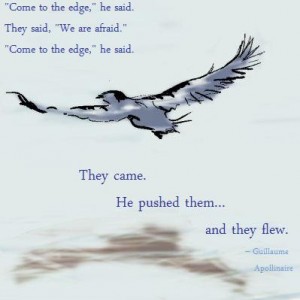A recent blog post explaining why some of my favorite books were… well, some of my favorite books—“Compelling Characters – Great Books Are All About the People”—started me thinking about my favorite authors. This is particularly important to me as I prepare to launch my debut novel, Forgive Me, Alex. After all, I hope to have the same impact on my readers that my favorite authors have had on me.
What brings me back to an author time and again? The simplest answer, of course, is that I so enjoyed one of his books, I naturally assumed his next book would offer an equally pleasant experience. (That’s usually the case, but not always.) Something in the author’s work grabs me, but what that is, precisely, varies greatly from one author to another.
For some, it’s the rapid-fire, grab-your-socks-and-hold-on pace of the story. In some such cases, it needn’t even be well written—and often isn’t. Sometimes, it’s nice just to escape in a quick, simple story, the kind you can read in a night without sacrificing any sleep time. I don’t often read these anymore, but every once in a while, it’s just what the doctor ordered.
However, authors who engage in this approach—fast story, lousy writing—take a big gamble. I’ve abandoned a few authors, even after reading several of their books, and even after considering them amongst my favorite authors, because they’ve clearly adopted this attitude: “Hey, you bought my last 8 books, so of course you’ll buy this next one, even if it is a sloppy mess my eighth-grade kid could have written.” The moment that attitude, the author’s utter disrespect for me as a reader and book buyer, becomes evident, I’m gone.
I’ve realized that I’m much more likely to forgive a plain vanilla plot if both the characters and the writing itself compel me forward. On the flipside, I’m unlikely to forgive weak, unrealized characters and lazy, sloppy writing, no matter how fast the plot zips along.
Let’s face it: every story has been told, most of them a thousand times. So what makes a book stand out? First is a unique set of characters—like meeting new and interesting people. Second is a unique setting, perhaps an exotic location you’ve always dreamed of, or an idyllic one that reminds you of your best days, real or imagined. Third is the author’s unique voice, a style that captures your attention early and holds on throughout—might be seamless and almost unnoticeable, or might be thrilling, offering you plenty of those man-I-wish-I’d-written-that moments.
There seems to be an attitude these days, ensconced in the world of self-published eBooks, that the story is all that matters, that good writing is not that important. Good heavens! I like a good story as much as the next guy, of course, but I have to be able to see past the words to actually find the story. If it’s terrible, sloppy writing, that will not happen.
Look, Dear Aspiring Writer, your every word needn’t be something channeled through the spirit of William Shakespeare. Really. But please… don’t give me paragraph after paragraph with the following averages: 3 lines per paragraph, with 5 sentences, 5 words per sentence, 0.6 verbs per sentence. I had the hiccups for 4 hours once, and guess what? I didn’t like it. I don’t want to feel as if I’m experiencing that again when I read your book.
Take a chance. Offer readers something that 5 million self-published authors aren’t already giving them. First, offer them considerate, strong, well written prose. Be a writer! Second, bring your characters to life; let them breathe and speak, sing and dance, suffer and rejoice, love and hate on the page.
If you provide those two elements, and use them to support a good story—even one that’s been told a thousand times—you’ll have a much better chance of long-term success. Do not sacrifice quality on the altar of quantity, because if you have 12 bad books out there, that will just be 12 bad books that I won’t buy. And I’m not alone in that.
‘Til next time, and as always, remember: To write well, you must work hard. To succeed in this tough gig, you mustn’t be lazy (or discouraged).
———-




I have numerous favorite writers, like Stephen King, Michael Crichton, Cormac McCarthy, Brian Lumley, et al. However, I have read a book or two that just didn't do it for me. I don't normally give up after one of their books disappoints me – not every writer can write to please all the people all the time. I have given up on writers when I discover that they don't pay it forward or have helpful blogs or (grrr) don't return my personal "I loved your book!" emails. I think half of all success is a writer's connection with his/her readers (and to continue to put forth their best work).
Karen, I agree that one disappointment is not enough to drive me away from a cherished author. Two in a row, however, will usually do the trick — not necessarily because the story didn't thrill me (can't do that EVERY time), but because the writing is just plain bad. As to a writer's connection to readers, I think that must come in rather "general" form most of the time — no way to respond to tens of thousands (or more) of fans — but as you said, a good blog, and due respect shown in future good works, are enough for me.